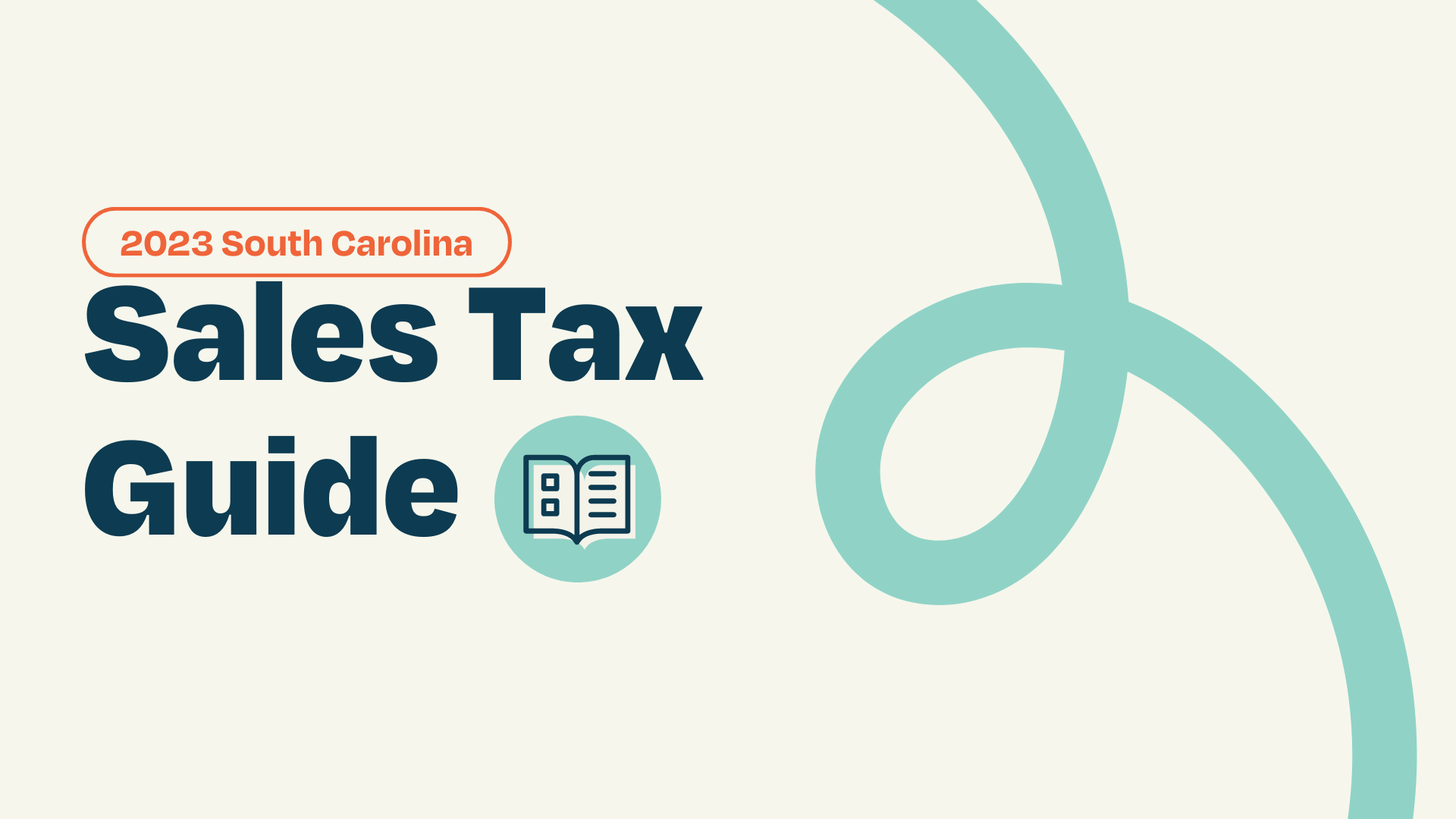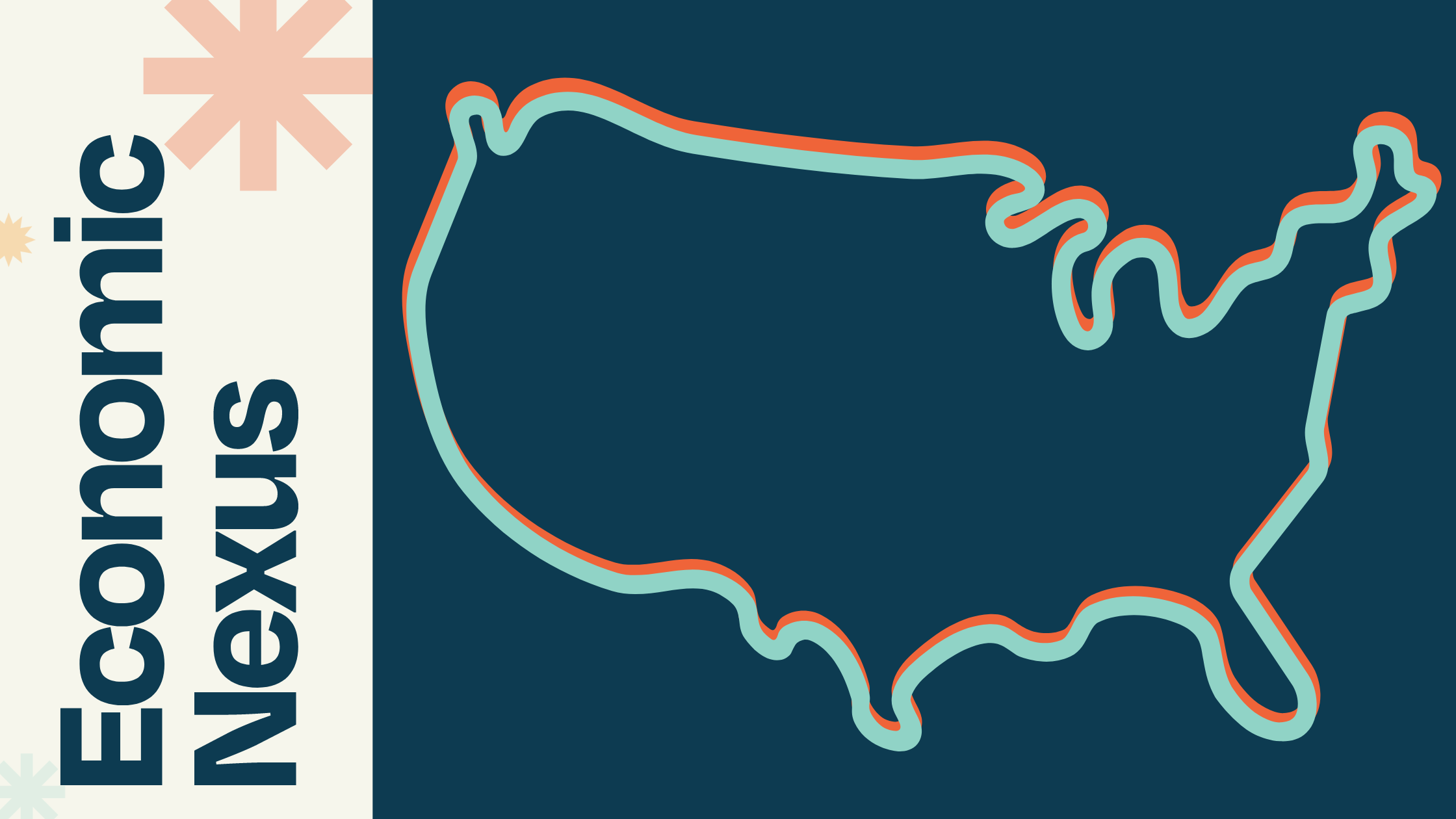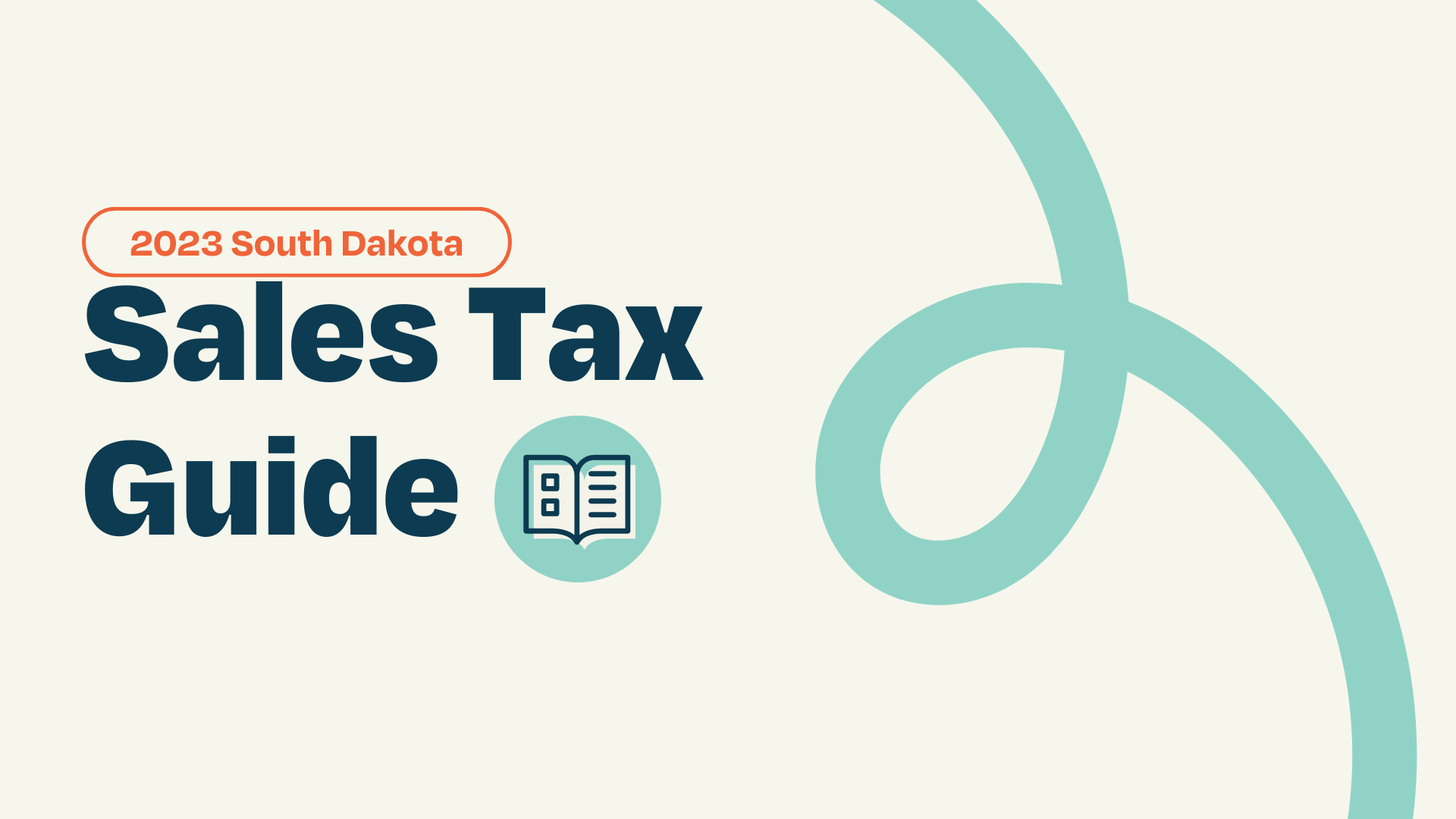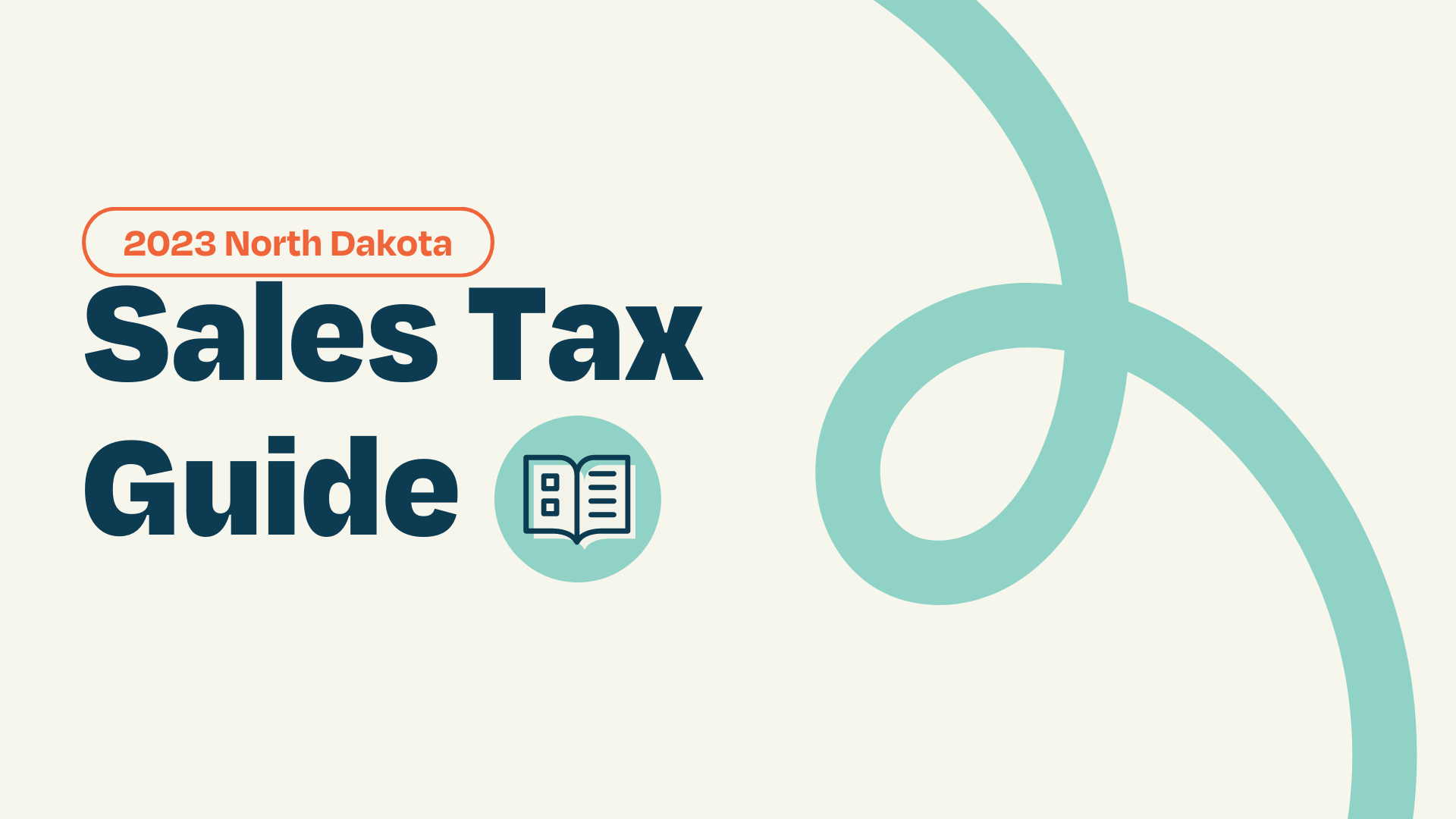1 min read
Economic Nexus by State: A Comprehensive Guide
As businesses continue to expand their online presence, understanding the implications of economic nexus has become increasingly important. Economic...

Welcome, fellow adventurers! Are you ready to navigate the exciting waters of South Carolina sales tax? I hope so, because today we're setting sail on a journey that will take you from the sandy shores of 'which sales are taxable?' to the bustling seaport of 'how to file your sales tax return'.
Think of this guide as your trusty compass, helping you avoid common mistakes and chart the most efficient course through your sales tax paperwork. Whether you're a seasoned business captain or a new entrepreneur setting sail on your maiden voyage, you'll find valuable insights and practical advice packed into every paragraph.
So, hoist the anchor, my friends! Let's dive into the world of South Carolina sales tax returns, knowing that the Accountingprose team is with you every nautical mile of the way.
|
Table of Contents |
Navigating the waters of sales tax can sometimes feel like you're searching for the fabled Lost Colony. But don't fret, intrepid explorer, we're here to help light your way. When it comes to South Carolina sales tax, knowing who to contact is half the battle.
When it comes to managing sales tax in the Palmetto State, the South Carolina Department of Revenue (SCDOR) is the captain of the ship. Their trusty crew of tax professionals is there to guide you through the murky waters of sales tax, whether you're just setting sail or you've been navigating these waters for years.
Here's how you can get in touch with them:
|
Mailing Address |
Department of Revenue, P.O. Box 125, Columbia, SC 29214-0400. |
|
Street Address |
300A Outlet Pointe Blvd, Columbia, SC 29210. |
|
Phone Numbers |
1-844-898-8542 |
|
|
|
|
Website |
Remember, while the SCDOR is a fantastic resource, sometimes navigating the sales tax seas can still feel overwhelming. That's where we, the Accountingprose crew, come in. Think of us as your loyal shipmates, ready to help guide you through any storm. So hoist the anchor and set sail with confidence, knowing you're not alone on this voyage!
Welcome back, fellow explorer! Today, we're delving into the mysterious world of "nexus" - that tricky tax territory that might just have you paying sales tax in South Carolina. But fear not! We're here to guide you through the Palmetto forest, one nexus at a time.
In tax lingo, having "nexus" is like having your very own business outpost on the tax frontier. It means you've set up shop (literally or figuratively) in the state, and you're now on the radar of the SCDOR. Let's break down the different types of Nexus in South Carolina.
Physical nexus is the most straightforward—it's like planting your business flag right in the South Carolina soil. If you have a physical presence in the state, such as an office, warehouse, or store, then you've got physical nexus. Even something as simple as storing inventory in the state can set up a physical nexus camp.
Economic nexus in South Carolina is a bit like catching the big fish. If you're making big sales, even without stepping foot in the state, you may still be on the hook for sales tax. You have created economic nexus if you have:
Gross revenue over $100,000 from sales into South Carolina during the previous or current calendar year. This applies to both physical products and digital goods/services.
200 or more separate transactions selling taxable items or services delivered into South Carolina in the previous or current calendar year.
Affiliate nexus is like having a cousin in South Carolina who's selling your goods. Here are some key details on what creates affiliate nexus in South Carolina:
The activities of an in-state affiliate on behalf of an out-of-state seller can create sales tax nexus for the seller.
An affiliate is defined broadly as any entity that works to directly or indirectly refer potential customers to the seller. This includes affiliates, associates, or any persons that have a business relationship with the seller.
Nexus is established if the affiliate engages in activities in South Carolina that are significantly associated with the seller's ability to establish and maintain a market in the state.
Activities that can create affiliate nexus include installation, maintenance and repairs, customer support services, processing returns and exchanges, soliciting sales, delivery and fulfillment, etc.
Simply advertising or linking to the seller's website generally does not create nexus for the seller. The affiliate must engage in more substantive activities.
The seller is responsible for collecting and remiting tax if nexus is established, not the affiliate. The activities are attributed to the seller.
A written affiliate agreement is not required for nexus to exist. Any informal affiliate relationship can create nexus if threshold activities are met.
South Carolina does not have click-through nexus laws. Click-through nexus laws are a type of economic nexus law that establish that a remote seller has nexus in a state if they have an agreement with an in-state affiliate to refer potential customers to the remote seller's website. South Carolina does not have this type of law.
Marketplace nexus in South Carolina is created when a marketplace facilitator facilitates sales of tangible personal property or services delivered into South Carolina by a remote seller who does not have a physical presence in South Carolina. The marketplace facilitator is required to collect and remit South Carolina sales tax on the sales of the remote seller.
The following are the criteria that must be met for marketplace nexus to be created in South Carolina:
The marketplace facilitator must facilitate sales of tangible personal property or services delivered into South Carolina.
The remote seller must not have a physical presence in South Carolina.
The remote seller must have gross sales of $100,000 or more in a calendar year from South Carolina buyers.
If a marketplace facilitator facilitates sales of a remote seller that meets the above criteria, the marketplace facilitator is required to collect and remit South Carolina sales tax on the sales of the remote seller. The marketplace facilitator is not required to collect and remit sales tax on the sales of a remote seller that does not meet the above criteria.
For example, let's say that a marketplace facilitator facilitates sales of a remote seller who is located in California and does not have a physical presence in South Carolina. If the remote seller has gross sales of $100,000 or more in a calendar year from South Carolina buyers, the marketplace facilitator is required to collect and remit South Carolina sales tax on the sales of the remote seller. However, if the remote seller has gross sales of less than $100,000 in a calendar year from South Carolina buyers, the marketplace facilitator is not required to collect and remit South Carolina sales tax on the sales of the remote seller.
Ah, use tax, the lesser-known cousin of sales tax. If sales tax is the tax on the purchase of goods, use tax is like the tax on the "use" of goods you bought tax-free. And yes, South Carolina does indeed have use tax laws. So if you're buying goods tax-free for your business and using them within the Palmetto State, you may be liable for use tax.
Remember, navigating the nexus can be a bit like sailing through uncharted waters. But with your trusty Accountingprose crew at the helm, you can navigate the South Carolina tax seas with confidence!
Welcome, intrepid explorer of the business frontier! If you've been charting a course through our South Carolina sales tax guide, you've now arrived at the critical stage of registration. Fear not, though! We've got the compass and the map to guide you through this process.
Registering for sales tax in South Carolina can feel like trying to catch a frog on a log in the middle of a swamp, but with the right tools and guidance, it can be as smooth as sweet tea on a hot southern day.
The first step in your journey is to hop onto the South Carolina Department of Revenue's (SCDOR) website. Here, you'll find an online portal called MyDORWAY, which is your gateway to all things tax-related in the state. You'll need to create an account here, but don't worry, it's free and relatively straightforward, like a dirt road through a Carolina pine forest.
Once you've set up your account, you'll need to apply for a Retail License. This is a critical document that grants you the right to operate and make sales in South Carolina. You'll need to provide some information about your business, including its location, what kind of goods or services you're selling, and your estimated monthly sales tax.
During this process, you'll also need to indicate whether your business has a physical location or whether it's a remote seller. This is important as it determines whether you have a physical nexus in South Carolina.
The application process can take a few weeks, so it's best to start early - like planting your crops in time for a good harvest. Once you've been approved, you'll receive your Retail License and can legally begin making sales in South Carolina!
The good news here is that unlike buying a shiny new tractor, registering for a South Carolina Sales Tax License won't cost you a dime. That's right, it's absolutely free to register, so you can save your pennies for that extra slice of peach pie.
Yes, indeed! Just like you need a driver's license to drive a car, you'll need a Federal Tax ID Number, also known as an Employer Identification Number (EIN), to register for a South Carolina Sales Tax License. It’s like the Social Security number for your business, helping the federal government recognize your business for tax purposes.
Ah, the plot thickens! Depending on your business, you may need to register with additional agencies in South Carolina. If you're in a profession that requires a license, such as real estate or cosmetology, you'll need to register with the appropriate licensing board. Businesses selling alcohol will need to touch base with the South Carolina Department of Revenue's Alcohol Beverage Licensing team. And don't forget about local permits and licenses, which can vary from county to county, like the different varieties of South Carolina barbecue.
Remember, registering for sales tax in South Carolina is a crucial step on your business journey. But you're not alone. The Accountingprose team is here, like a trusty coonhound, ready to guide and support you every step of the way.
Now that you've set up your business outpost in the Palmetto State, it's time to discuss another important landmark on our tax adventure: collecting sales tax. This is where the rubber meets the road (or the riverboat hits the water, if you will).
If sales tax were a football game, think of South Carolina as playing by "destination" rules. This means the sales tax rate you collect isn't based on where your business is located (the "origin"), but where your customer is, or the "destination". So if you're selling your famous peach cobbler to a customer in Charleston, you'll need to apply the Charleston sales tax rate, even if your bakery is all the way over in Spartanburg.
South Carolina casts a pretty wide net when it comes to what's subject to sales tax. It's like a big, old fishing trawler hauling in everything from tangible goods like furniture, books, and electronics to certain services. Always check with the SCDOR if you're unsure whether your product or service is taxable.
Now, here's a modern twist on our old-timey adventure...
Yes, SaaS is taxed in South Carolina. In a private letter ruling issued in 2018, the South Carolina Department of Revenue held that software subscription services are tangible personal property subject to sales and use taxes. This means that businesses that provide SaaS must collect and remit sales tax on their sales into the state.
The tax applies to all SaaS, regardless of whether it is accessed or used permanently or temporarily, and regardless of whether it is downloaded. Some examples of taxable SaaS include:
Software programs that are accessed or used online to handle such functions as payroll, accounting, or human resources.
A subscription to a software program that provides digital tools for office work, such as a spreadsheet program, a program to create overhead presentations, or a program to create written documents.
Custom software remains exempt in South Carolina whether downloaded or delivered in tangible form. The customization of prewritten computer software is also exempt.
If a retailer fails to collect tax on a sale of SaaS, the consumer must remit the corresponding use tax directly to the state.
Like hidden treasures in a pirate's chest, some items are exempt from South Carolina sales tax. These include certain groceries, prescription medications, and agricultural supplies. It's always a good idea to check with the SCDOR to see if your goods are tax-exempt.
Certain groups in South Carolina, like nonprofit organizations, government entities, and some wholesalers and manufacturers, can walk the sales tax plank and dive into the sea of tax exemptions. They'll need to provide a valid exemption certificate to prove their eligibility.
If you're selling to a customer who's exempt from sales tax, it's like they've got a golden ticket. But you'll need to keep a copy of their exemption certificate on file. This is your proof that the sale was tax-exempt, should the SCDOR come a-knocking.
Losing a South Carolina Sales Tax Exemption Certificate is like losing your map on a treasure hunt. But no need to abandon ship! If you lose a certificate, reach out to the customer who provided it and ask for a new copy.
In our tax adventure, we've arrived at the final frontier: filing and paying sales taxes in South Carolina. It might feel like you're staring down a fierce Carolina Panther, but with the right knowledge and tools, you'll find it's more like petting a friendly Palmetto Bug.
The frequency with which you'll need to file and pay sales tax in South Carolina depends on the amount of tax you collect. It's similar to how often you'd water your garden – the more plants you have, the more often you'll need to tend to them.
For most businesses, you'll file and pay monthly, quarterly, or annually. Monthly filers usually have more than $100 in tax to report, while quarterly filers typically have less than $100 but more than $15. If you have less than $15 to report, you'll only need to file annually.
The filing frequency and dues dates are as follows:
|
Monthly Filing |
All sales tax accounts are set up on monthly filing frequency at the start.
|
Due on the 20th of the month following the reporting period. |
|
Quarterly Filing |
The SCDOR may allow a taxpayer to file quarterly, instead of monthly; if the taxpayer’s quarterly tax liability is $300 or less. |
Due on the 20th of the month following the end of the quarter (April 20, July 20, October 20, and January 20). |
Now here's a curveball. If your South Carolina sales tax filing date falls on a weekend or holiday, don't worry! The state allows you to file on the next business day, just like turning in a late homework assignment because your hound dog ate it.
Filing your South Carolina sales tax return is like following a recipe to make the perfect pecan pie. You need to gather all the ingredients, follow the instructions, and give it the right amount of time to bake.
Start by gathering all your sales records. You need to know how much you've sold and how much tax you've collected. Just like you need to know how many pecans you've got before you start baking.
Next, you'll need to calculate how much sales tax you owe. South Carolina is a destination-based sales tax state, meaning you'll need to calculate the tax based on your customer's location. It's a bit like adjusting your recipe based on the number of guests you're serving.
Once you've got your totals, it's time to file. South Carolina prefers that you file your sales tax return online through the MyDORWAY portal. It's a bit like submitting your pecan pie recipe to a cooking contest online.
To file, log into your MyDORWAY account and select the "Sales Tax" option. From there, you'll follow the prompts to enter your sales and tax information. Once you've entered everything, you'll submit your return. It's like hitting "send" on that recipe submission.
But the process doesn't end there. After submitting your return, you'll need to pay any tax due. It's like paying the entry fee for the contest. You can do this through the MyDORWAY portal as well.
Remember, filing your South Carolina sales tax return is an essential part of running your business. Just like you can't make pecan pie without pecans, you can't run a business without filing your taxes. But don't worry! Just like a trusted old cookbook, the Accountingprose team is here to guide you through every step of the process.
Just like getting caught with your hand in the cookie jar, there are penalties if you don't comply with South Carolina's sales tax laws. Late filers may face a 10% penalty of the tax due, and late payers could see a 0.5% penalty per month, up to 25% of the tax owed.
Yes, South Carolina does offer a few sales tax incentives, like a kid getting extra dessert for finishing their veggies. These include exemptions for certain manufacturing equipment and agricultural supplies, as well as incentives for businesses in economically disadvantaged areas. It's always worth checking with a tax professional to see if you qualify for any of these sweet deals.
Remember, when it comes to filing and paying sales taxes in South Carolina, the Accountingprose team is here to help. We're your trusty co-pilot, ready to guide you through every twist and turn on this tax adventure.
Filing your South Carolina sales tax returns can feel like trying to find your way through a dense Carolina forest. But fear not! With these five tips, you'll be navigating the tax landscape like a seasoned explorer, avoiding common pitfalls on your journey.
Stay Organized: Just like you wouldn't embark on a hike without a map, you shouldn't approach your sales tax returns without organized records. Keep track of all your sales, both taxable and non-taxable, along with the associated taxes you've collected. The more organized your records, the less likely you are to make a mistake.
Know Your Due Dates: In the world of sales tax, punctuality is key. Mark your calendar with your filing due dates, whether they're monthly, quarterly, or annually. Think of these like your friendly trail markers, keeping you on the right path and away from the abyss of late penalties.
Understand Destination-Based Sales Tax: South Carolina is a 'destination-based' sales tax state, meaning the tax rate depends on your customer's location, not your business location. It's like delivering a package - you need to know the final destination to calculate the postage. Make sure you're applying the correct rates for all your sales.
Use the MyDORWAY Portal: South Carolina prefers businesses to file their sales tax returns online through the MyDORWAY portal. It's like having a handy travel guide right in your pocket. Be sure to familiarize yourself with this system to avoid any last-minute filing fumbles.
Get Professional Help: Filing sales tax returns can be a complex process, and there's no shame in asking for help. It's like hiring a seasoned guide for a challenging hike. The team at Accountingprose has the expertise to help you avoid mistakes and ensure your sales tax filing goes smoothly.
Remember, every business journey has its bumps and detours. But with these tips, you'll be well-equipped to avoid common pitfalls and keep your sales tax filing adventure on track. Happy trails!
We've navigated the vast ocean of South Carolina sales tax together, and now we're safely docked back in harbor. Along the way, we've deciphered the cryptic map of filing frequencies, weathered the storm of due dates, and unearthed the treasure chest of sales tax incentives.
While the journey may have seemed daunting at first, I hope you're now feeling more like an intrepid explorer than a castaway lost at sea. Remember, every business journey has its challenges, but with careful planning and a bit of guidance, you can overcome any obstacle.
Education is the compass that guides us in the world of business, and I hope this guide has empowered you to navigate the South Carolina sales tax landscape with confidence. But remember, you're not alone on this voyage. The Accountingprose team is always ready to lend a helping hand, whether you need a seasoned guide to lead the way or a friendly co-pilot to accompany you on your journey.
Let's continue to learn, explore, and grow together, charting a course to success in the world of business. Because in the end, we're not just navigating the seas of South Carolina sales tax — we're navigating the future of our businesses. And together, there's no storm we can't weather.
Onward, fellow adventurers! The world of business awaits!
|
Ready to work with a South Carolina sales tax expert? We've love to work with you! |
|
Alaska Sales Tax Guide (N/A) |
||||
|
Montana Sales Tax Guide (NA) |
||||
|
Oregon Sales Tax Guide (N/A) |
||||
|
Delaware Sales Tax Guide (N/A) |
||||
|
New Hampshire Sales Tax Guide (NA) |
||||
And don't forget to check out our blog about Economic Nexus, which serves as an invaluable resource for businesses who have sales that are subject to sales tax.
This blog is for informational purposes only and the information is accurate as of 2023-06-19. If you want legal advice on sales tax law for your business, please contact a State and Local Tax (SALT) professional. Keep in mind that sales tax regulations and laws are subject to change at any time. While we strive to keep our blog current, this blog possibly may be out of date by the time you review it.

1 min read
As businesses continue to expand their online presence, understanding the implications of economic nexus has become increasingly important. Economic...

South Dakota Sales Tax in a Word Hello, trailblazers! Today, we're embarking on an expedition across the wide-open prairies of South Dakota...

North Dakota Sales Tax in a Word Embarking on the journey of running a small business in North Dakota is an exciting adventure filled with...